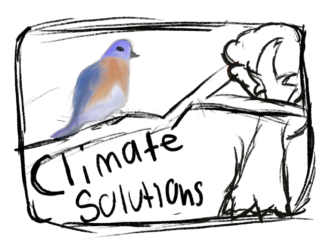
Great Lakes Echo Climate Solutions logo. Image: Great Lakes Echo Climate Solutions
By Borjana Alia
Energy bills rose in households across the United States after the COVID-19 pandemic, findings by researchers at Indiana State University and Cleveland State University show.
That, in turn, created energy insecurity in many households, which led to looking for techniques for coping with finances and behavior, the researchers said.
Financial and behavioral coping techniques include cutting other expenses such as food or medical care, taking out loans and even lowering temperatures in the home to an unsafe level, according to their study in the journal PNAS, or Proceedings of the National Academy of Sciences.
Utilities and government agencies are cooperating in Michigan, Ohio, Indiana and other Great Lakes states to ease the burden and risks of energy uncertainty for low-income households.
The recent study by professor Sanya Carley and her team centers around the increase in energy costs, especially for families. It found that one-third of American homes are consistently unable to pay their energy bills.
Carley said, “When they struggle to pay their bills, it can affect their mental and physical health.”
Carley, an energy justice expert at Indiana University, said that when households can’t afford utility payments, it hurts their ability to power appliances and other electric devices and forces them to make tough decisions. For some, that means deciding to unplug their refrigerator or not charging vital medical devices.
For those who struggle to keep up with energy bills, Carley says there are government programs designed to help them.
The low-income home energy assistance program called the Weatherization Assistance Program (WAP) is one of them.
The program aims to reduce energy costs for households by making energy use in homes more efficient. Low-income households that benefit from this program on average save $327 every year, according to the U.S. Department of Energy.
In Michigan, collaborations among DTE Energy, the state Department of Health and Human Services and the Public Service Commission have designed a process to provide energy efficiency education and assistance to those struggling to keep up with utility bills.
Tamara Johnson, the director of energy assistance at DTE Energy, stressed the importance of the collaboration.
Due to the fact that the balance owed is so high, some aren’t eligible for assistance, but “we’ve gotten to a place where we don’t see those high balances,” Johnson said.